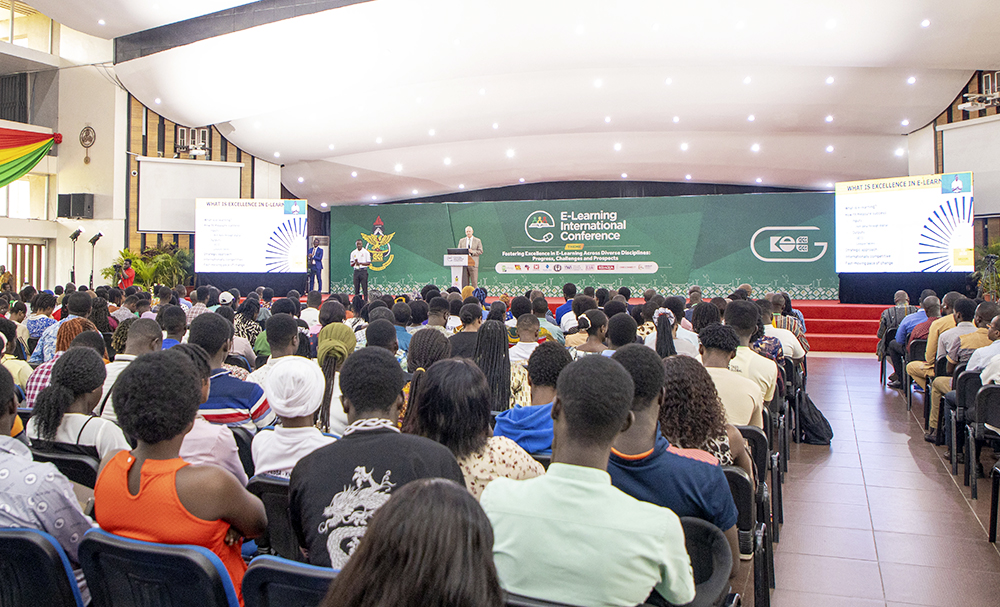The Kwame Nkrumah University of Science and Technology (KNUST), Kumasi has held the 2nd edition of the E-Learning International Conference on 11th and 12th July 2024 at the Great Hall of the University. The Conference sought to break down barriers in education, foster collaboration, and drive innovation by gathering experts from across the globe to share their knowledge and experiences in the advancement of digital education.
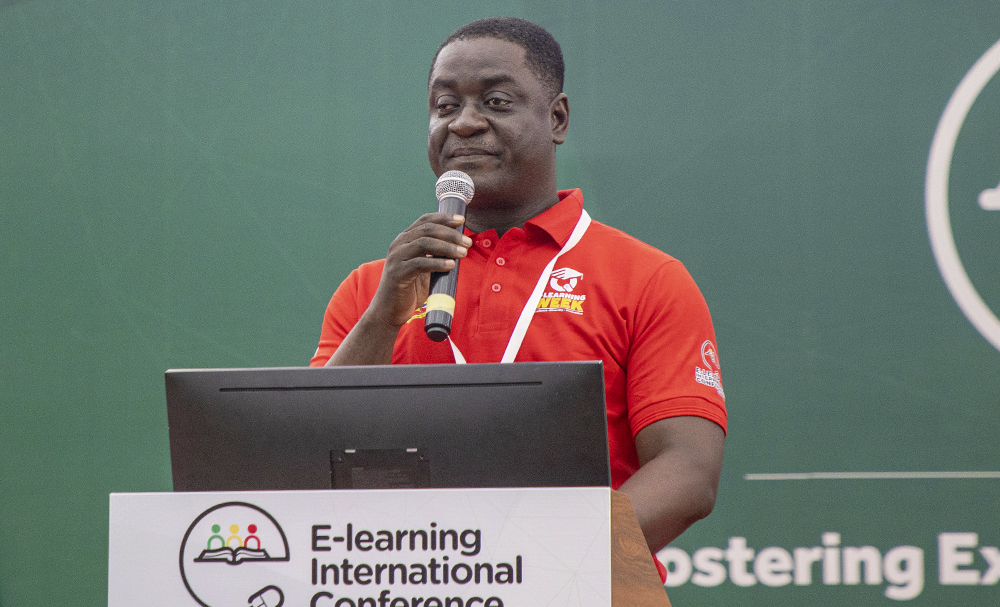
The Director of the KNUST E-Learning Centre, Professor Eric Appau Asante, highlighted the strategic decisions driving the Conference's rebranding. He noted that the E-Learning International Conference underscores KNUST's recognition of the need for a comprehensive forum where ideas can be exchanged, experiences shared, and innovations in digital education explored. "We recognise that e-learning plays a crucial role in pushing the boundaries of what is possible in education. Through research and impactful projects, we aim to break down barriers that hinder access to education," he stated.
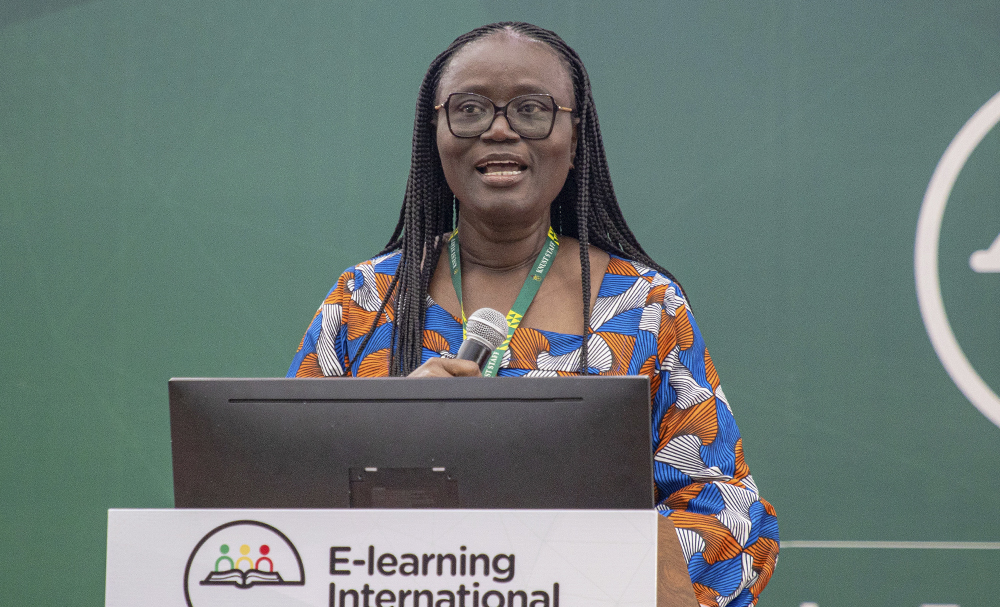
In her opening address, the Vice-Chancellor of KNUST, Professor (Mrs.) Rita Akosua Dickson underscored the importance of collective effort in advancing e-learning. "True progress in e-learning cannot be achieved in isolation. It thrives on collaboration and partnership. This Conference serves as a platform uniting diverse stakeholders, educators, administrators, trainers, technologists, students, policymakers, investors, and industry experts," she stated. Professor (Mrs.) Dickson also reiterated the University's commitment to enhancing its e-examination strategies, with plans to expand online examination rollouts. She emphasised the responsibility of cross-disciplinary collaboration to ensure that every field benefits from advancements in e-learning.
The first day of the Conference featured thought-provoking keynote speeches, interactive workshops, and panel discussions addressing the challenges and opportunities of the evolving digital education landscape.
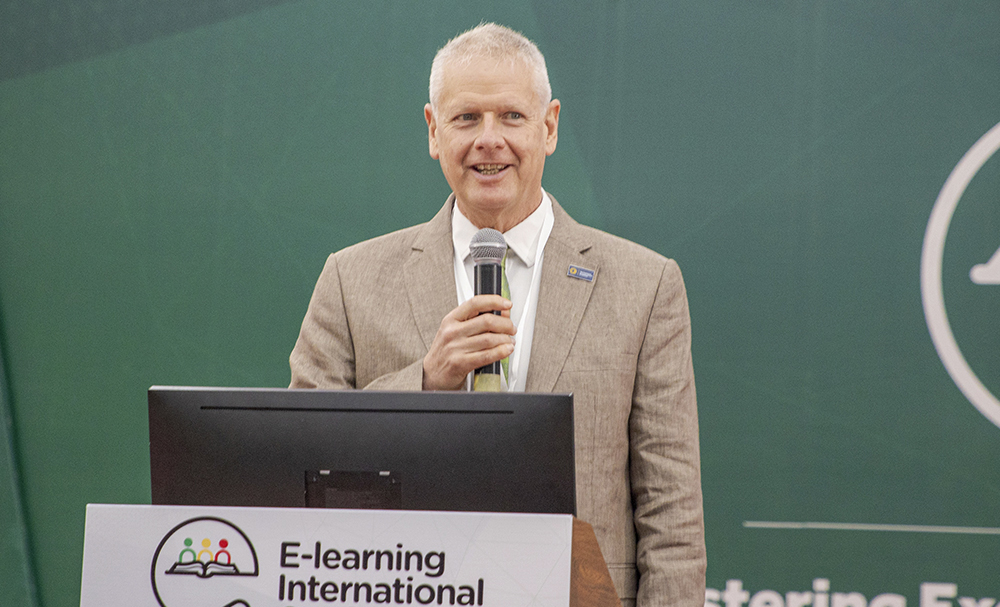
The Secretary General of the Association of Commonwealth Universities, Professor Collin Riordan, provided a global perspective on the digital revolution in education. He discussed the opportunities and challenges posed by rapid digital transformation, driven by factors such as the COVID-19 pandemic, the advent of AI, and constrained public finances. "E-learning is a major way that learning across the world happens," said Professor Riordan. He highlighted key success factors for progress, including a long-term strategic approach, digital design from the ground up, fostering skills through training the trainers, and being open to international collaboration.
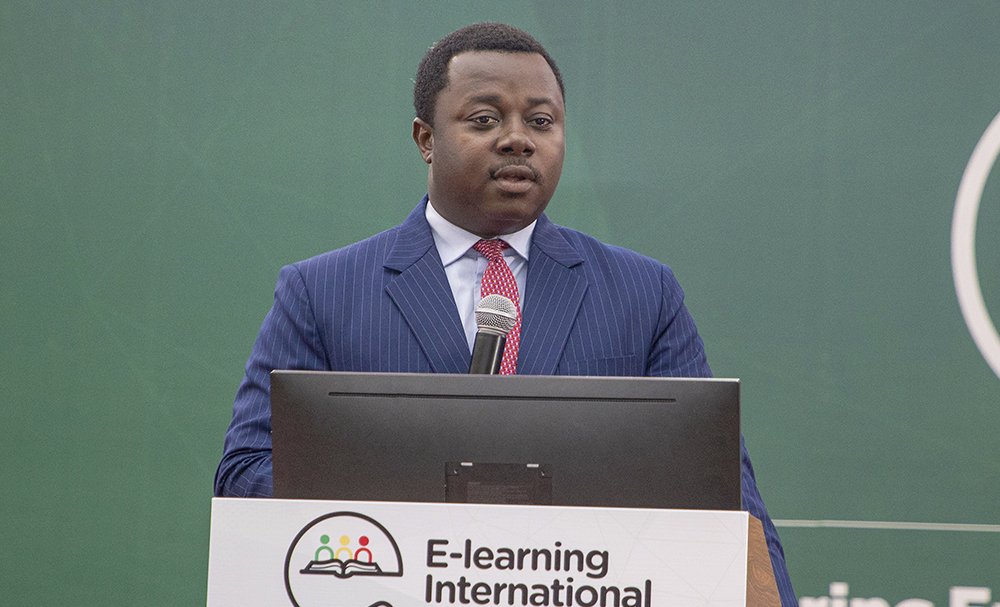
Rev. John Ntim Fordjour, Deputy Minister of Education, Republic of Ghana, commended KNUST for its leadership in e-learning innovations, such as establishing virtual reality studios. He discussed the government's commitment to leverage technology to provide quality education for all learners.
The event also featured a presentation by Phil Baty, Chief Global Affairs Officer at Times Higher Education, on the role of digitalisation in higher education rankings. This was followed by a panel discussion and parallel sessions with oral presentations. Notably, Professor Wilberforce A. Owusu-Ansah from KNUST's Africa Higher Education Health Collaborative Project shared insights on digital transformation in the Health Sector, drawing lessons from the Mastercard Health Collaborative Project. Other presentations included the Commandant of the Kofi Annan International Peacekeeping Training Centre (KAIPTC-Ghana), Major General Richard Addo Gyane among others.








